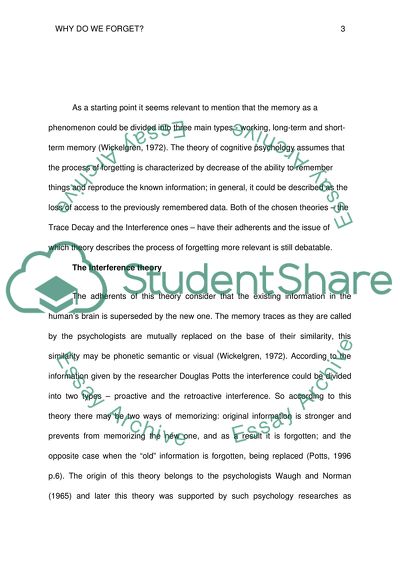Cite this document
(How We Forget - the Interference and the Decay Theories Literature review Example | Topics and Well Written Essays - 1250 words, n.d.)
How We Forget - the Interference and the Decay Theories Literature review Example | Topics and Well Written Essays - 1250 words. https://studentshare.org/psychology/1859059-why-do-we-forget-choose-two-theories-of-forgetting-to-support-your-argument-with-experimental-evidence
How We Forget - the Interference and the Decay Theories Literature review Example | Topics and Well Written Essays - 1250 words. https://studentshare.org/psychology/1859059-why-do-we-forget-choose-two-theories-of-forgetting-to-support-your-argument-with-experimental-evidence
(How We Forget - the Interference and the Decay Theories Literature Review Example | Topics and Well Written Essays - 1250 Words)
How We Forget - the Interference and the Decay Theories Literature Review Example | Topics and Well Written Essays - 1250 Words. https://studentshare.org/psychology/1859059-why-do-we-forget-choose-two-theories-of-forgetting-to-support-your-argument-with-experimental-evidence.
How We Forget - the Interference and the Decay Theories Literature Review Example | Topics and Well Written Essays - 1250 Words. https://studentshare.org/psychology/1859059-why-do-we-forget-choose-two-theories-of-forgetting-to-support-your-argument-with-experimental-evidence.
“How We Forget - the Interference and the Decay Theories Literature Review Example | Topics and Well Written Essays - 1250 Words”. https://studentshare.org/psychology/1859059-why-do-we-forget-choose-two-theories-of-forgetting-to-support-your-argument-with-experimental-evidence.


